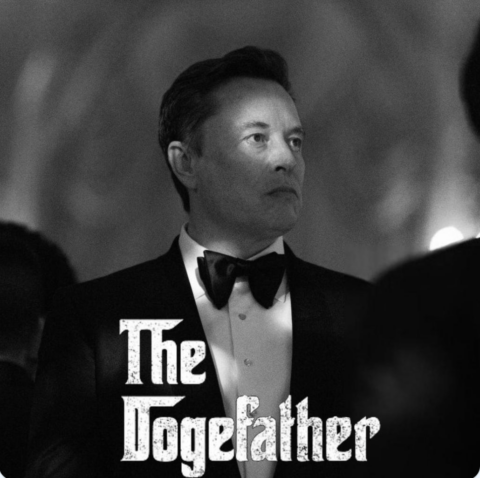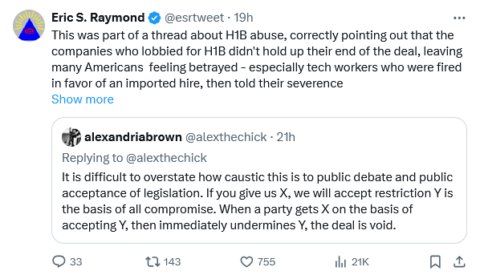The accelerating downfall of the academic-political complex is the subject of John Carter’s most recent post at Postcards from Barsoom:

University College, University of Toronto, 31 July, 2008.
Photo by “SurlyDuff” via Wikimedia Commons.
Look. In any given case, for any given scientist working inside the university system, there are exactly two possibilities.
One: they embraced all of this with cheerful, delirious, evangelical enthusiasm. Religious devotees of the unholy cause of converting every institution to the One False Faith of Decay, Envy, and Incompetence, they have spent the last decade or more enforcing campus speech codes, demanding inclusive changes to hiring policies, watering down curricular requirements to improve retention of underrepresented (because underperforming) equity-seeking demographics, forcing their research collaborations to adopt codes of conduct, and mobbing any of their colleagues who voiced the mildest protest against any of this intellectual and organizational vandalism.
Two: they had reservations, but went along with it all anyhow because what were they to do? They needed jobs; they needed funding; and anyhow they didn’t go into STEM to fight culture wars. As the article says, “They’d prefer to just get back to the science,” and the easiest way to get back to the science was to just go along with whatever the crazies were demanding. Even if the crazies were demanding that they abandon any pretense of doing actual science.
The first group are enemies.
The second are cowards.
Both deserve everything they get.
And I am going to enjoy every moment of them getting it.
Look, I am going to vent here a bit, okay? Because the mewling in this article succeeded in getting under my skin.
Not long ago I was considered a promising early career scientist, with an excellent publication record for my field, a decent enough teaching record, and all the rest of it. After several years as a semi-nomadic postdoc – which had followed several years as a semi-nomadic graduate student – it was time to start looking for faculty positions. My bad luck: Fentanyl Floyd couldn’t breathe, and the networked hive consciousness of eggless harpies infesting the institutions was driven into paroxysms of preening performative para-empathy.
What this meant was two things. First, more or less every single university started demanding ‘diversity statements’ be included in faculty application packages, alongside the standard research statements, teaching statements, curriculum vitae, and publication list. The purpose of the diversity statement was to enable the zampolit in HR and the faculty hiring committee to evaluate the candidate’s level of understanding of critical race theory, gender theory, intersectionality, and all the rest of the cultural Marxist anti-knowledge; to identify candidates who had already made contributions to advancing diversity; and to identify candidates who had well-thought-out ten-point plans to help advance the department’s new core principle and overriding purpose, that being: diversity.
The second thing it meant was that hiring policies now implicitly – in the United States – and explictly (in Canada) mandated diversity as an overriding concern in hiring. As everyone knows, this means that if you’re a heterosexual cisgendered fucking white male, you are not getting hired.
In other words, I was now expected to write paeans praising the very ideology that had erected itself as an essentially impermeable barrier to my own employment, pledging to uphold this ideology myself and enforce it against others who look like me. “Humiliate yourself before us,” I was being told, “And we still won’t hire you, lol.”
Having some modicum of self-respect, I refused to go along with this. This meant that I simply could not apply for something like 90% of the available positions. And when I did apply to positions that didn’t require a diversity statement, and successfully got an interview, guess what? One of the first questions out of the mouth of one of hiring committee members would be “what will you do for diversity”, or “I see you didn’t mention diversity in your teaching statement …” See, even if it isn’t mandated by the administration, that doesn’t stop the imposter-syndrome-having activist ladyprofs from insinuating the diversity test on their own initiative. I once had a dean, a middle-aged Hispanic woman, tell me “women in science are very important to me” right at the beginning of the interview; I very nearly got that job, because everyone on the committee wanted me, but later – after they inexplicably ghosted – found out that she’d nixed it. They just didn’t hire anyone.
Right around the same time, of course, we were in the thick of the COVID-19 scamdemic. You remember, the one that was just the flu, bro, until it became the new Black Death that definitely did not come from a laboratory shut up you conspiracy theorist; which couldn’t be stopped by masks so don’t be silly until suddenly masks were the only thing that could save you; which led to us all being locked in our houses for a year because some idiot wrote a Medium article called “the dance of the hammer with your soft skull” or whatever which then went viral inside the hysterosphere; which motivated the accelerated development of a novel mRNA treatment that no one was going to get because you couldn’t trust the Evil Orange Man’s bad sloppy science until suddenly it was safe and effective and then overnight absolutely mandatory and anyone who refused to take it should be sent to a camp.
Yeah, remember that?
I guarantee you that every single credentialed scientist in that article was on board for all of it.
How do I know this?
Because they all were.







 Antidiscrimination law is the reason for the Birthrate Collapse.
Antidiscrimination law is the reason for the Birthrate Collapse.




